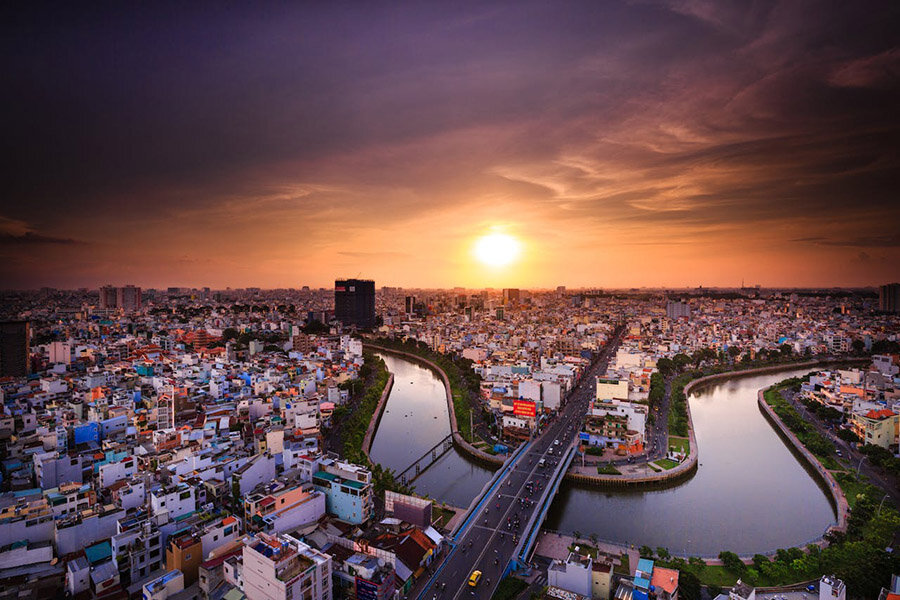
Photo: Pexels
Vietnamese authorities have approved amendments to the citizenship law, removing key restrictions on obtaining a Vietnamese passport. Foreigners and overseas Vietnamese can now obtain citizenship without renouncing their existing nationality. Additionally, language proficiency and minimum residency requirements have been scrapped, Asia News reports.
This law is part of the largest reform in Vietnam in the last 40 years. The National Assembly also relaxed naming requirements: foreigners will no longer need to adopt a Vietnamese name to acquire citizenship. These changes simplify the application process. The amendments are included in Resolution No. 57, passed in December 2024. The document aims to foster science and technology development and introduces a “special mechanism” to attract skilled Vietnamese and international talent.
Among the declared measures are the right to own property and land, competitive salaries, and an improved working environment. Restrictions remain only for specific categories: civil servants, military personnel, and law enforcement officers must retain only Vietnamese citizenship, except in special cases.
The reform is expected to help Vietnam outpace regional rivals in technology by 2030, particularly in artificial intelligence and semiconductors. These fields have been prioritized, but a lack of advanced professionals persists. The citizenship reform is seen as a first step toward attracting these experts. Overall, the measure is expected to stimulate economic growth. Vietnam forecasts GDP growth of 8% in 2025 and aims to achieve double-digit rates in the longer term. By 2045, the country hopes to become a high-income economy.
On June 30, Communist Party General Secretary To Lam called on overseas Vietnamese to return home, emphasizing that the country is ready to welcome “citizens far from home” and looks forward to their contributions to national development. Historically, Vietnamese authorities were wary of dual citizenship due to the country’s long history of foreign aggression and wars with France, Japan, the U.S., Cambodia, and China. The final reunification occurred just 50 years ago, and armed conflicts continued into the 1980s.
Today, many families send their children abroad for education—to the U.S., UK, Australia, and Europe. Young Vietnamese often stay overseas and work at companies like Google, Meta, IBM, and Microsoft. Some have emigrated permanently. According to the state commission, around 6 million Vietnamese live in 130 countries, 80% of them in developed economies.
Dual citizens have previously been able to reside in Vietnam, but faced bureaucratic hurdles and limitations in rights. Foreign nationals lacked full access to property ownership and encountered strict banking conditions regarding account opening, deposits, and mortgages.
In recent years, Vietnam has been actively developing programs targeting foreign professionals, investors, and entrepreneurs. One such initiative is a new long-term visa program of 5–10 years. It aims to attract businesspeople and investors and enhance Vietnam’s position in the region amid competition with neighboring countries.
Maintaining investments for five years may lead to permanent residency. Priority industries include construction, manufacturing, agriculture, tourism, and innovation. The new program could become an alternative to current investor visa categories, which require company registration and personal management involvement.
The proposed “golden visa” may offer more flexible terms, including for passive investors. Initial phases will focus on investment-attractive regions—Hanoi, Ho Chi Minh City, Da Nang, and Phu Quoc Island. A talent visa is also being developed, targeting highly qualified professionals in science, culture, technology, the arts, and sports. The visa reform is accompanied by a broader liberalization strategy: e-visas have been extended to 90 days, the number of visa-free countries has increased, and re-entry procedures have been simplified.
Read also:
Vietnam’s tourism: record growth and key challenges
Vietnam extends visa-free entry for Russians to 45 days
Second passport myths: what’s real and what’s not
Golden visas 2025: countries maintaining programs and new limits
Подсказки: Vietnam, citizenship, dual citizenship, immigration, golden visa, diaspora, law, Southeast Asia, investment, reform








